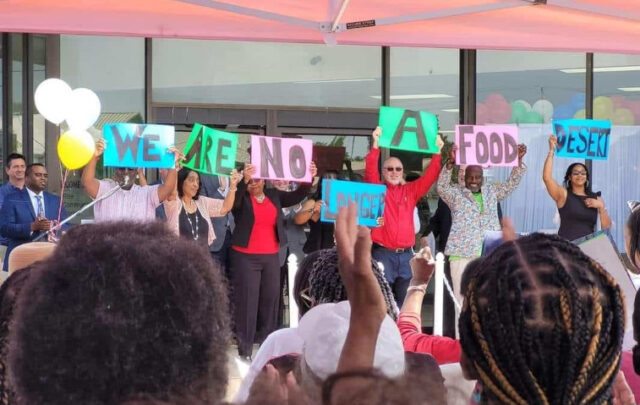 The last month has seen exciting U.S. sail-transport developments. Three encouraging events indicate that the nation may no longer be falling behind Europe in nurturing a critical form of renewable energy. In northern Europe at least four well-established players are operating on a significant scale, and preparing to build more ships. Previous reports this summer on SailTransportNetwork.com have discussed these entities’ exciting voyages and plans for new vessels.
The last month has seen exciting U.S. sail-transport developments. Three encouraging events indicate that the nation may no longer be falling behind Europe in nurturing a critical form of renewable energy. In northern Europe at least four well-established players are operating on a significant scale, and preparing to build more ships. Previous reports this summer on SailTransportNetwork.com have discussed these entities’ exciting voyages and plans for new vessels.
Due in part to the constant promotion of sail power by the Sail Transport Network and participating sailors since 1999, the U.S. is finally rising to the occasion. The occasion is none other than the recent historic global peaking of easy-to-extract-and-refine conventional crude oil, and the accelerating destabilization of the Earth’s benign climate.
⚓ On Aug. 27, the New York Times reported on future sail design for cargo ships, featuring B9 Shipping’s coming Dyna-rig design. This news feature is the first coverage of the trend toward sail transport on a large scale. But the story did not recognize the potential for traditional sailboats, as demonstrated by the biggest sail transporter in the world, Fair Transport’s Tres Hombres schooner-brig. Nor did the newspaper realize it inadvertently contradicted the fact that the featured B9 ship or any “ecoliner” will be able to cruise indefinitely under sail power alone (although they will have auxiliary engines using renewable energy). The link for the Times story “Cargo Ship Designers Turn to Wind to Cut Cost and Emissions” and other links are at bottom.
⚓ On Sept. 4, Care2 and ForceChange circulated a petition for slashing bunker-fuel propulsion of cargo vessels, in favor of sail technology. This is the first time the mainstream environmental movement has looked at sail transport and promoted it.
⚓ On Sept. 10, Thanksgiving Coffee Company co-launched with business-culture-changer Carrotmob their campaign to sail tons of coffee regularly from Central America to northern California. This high-profile internet project originated in consultation with Sail Transport Network, and the progression to internet-based generating of support is a welcome additional tool for the sail transport movement.
This global campaign for truly “green” coffee is what the remainder of this report is about. Carrotmob and subsequent word of mouth might get many people thinking about where the products they consume come from. Additionally, how will today’s consuming have to change because of the harsh realities of peak oil and climate change?

When corporations get meaningful business at “profit centers” outside the corporations’ main line of products or services, they tend to react. If there is promise of growth or occupying a niche market with an advantageous share, practices and priorities can shift. Witness the more vegetarian options at fast food “restaurants.” But an activist campaign can occasionally be the stimulus for a shift in business practices. This has usually been in the form of boycotts, which have sometimes worked. However, coffee drinkers are not about to boycott coffee in order to force an importer or roaster to cease bunker-fuel emissions.
So, a more positive and comfortable approach is to reward the corporation for more environmentally sensitive or human-rights appropriate behavior. Taking this principle a step further, purchases of the product (Thanksgiving Coffee) are made in advance in order to offset costs related to establishing sail power. And the Fort Bragg, California corporation in this case has led the way.
The Carrotmob campaign features an entertaining video on the coffee-sailing project, titled Buy Coffee to Fight Climate Change!
The video has received over 16,000 “Likes” on Facebook, as Carrotmob tries to raise $150,000 for Thanksgiving Coffee to bring about the first sail-transport coffee delivery operation on a large scale in modern times.
Here is how Carrotmob works:

One of the videos on the website addresses the cargo shipping industry’s trend toward greater efficiency (authority cited: Carbon War Room at shippingefficiency.org). But some of us feel it is too late and perhaps pointless to try to “green” oil-burning cargo boats that can never function solely with wind power.
Carrotmob and Thanksgiving Coffee do understand the difference. In their global coffee campaign’s website they state,
Making traditional shipping more efficient is very important, but switching over to renewable wind power is even better!
While it’s rare to see businesses ship products internationally in this way, there are some precedents. For example, Mast Brothers Chocolate Company recently began sailing their cocoa beans from the Dominican Republic to Brooklyn, New York (Watch the video). In addition, since 2009 a ship called Tres Hombres has sailed rum, wine, spices, cocoa, and more between Europe, the Caribbean, and America. By pursuing this path, Thanksgiving Coffee is a pioneer, but thankfully there are others, such as Fair Transport and the Sail Transport Network also working towards the same goal.
 The Tres Hombres, by Michel Floch
The Tres Hombres, by Michel Floch
For details on the approach Carrotmob and Thanksgiving are taking, see the website sections “About the action Thanksgiving Coffee will take” and “About the money” at carrotmob.org in “View more details.”
This sail-transport commitment by a company that has won awards for sustainable coffee sourcing and production is historic. They are plunging into the waters of change, knowing it is the future of business in the post-peak oil, greenhouse world. Let us assist this bold effort by buying some advance-sail-transported coffee today, at store.thanksgivingcoffee.com.





